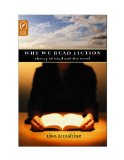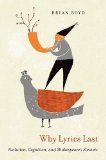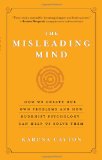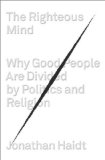
The Vision Revolution: How the Latest Research Overturns Everything We Thought We Knew About Human Vision by Mark Changizi is currently only $1.79 in the US kindle edition. (Prices subject to change, so be sure to doublecheck before you buy.)
Book description from the publisher:
In The Vision Revolution: How the Latest Research Overturns Everything We Thought We Knew About Human Vision, Mark Changizi, prominent neuroscientist and vision expert, addresses four areas of human vision and provides explanations for why we have those particular abilities, complete with a number of full-color illustrations to demonstrate his conclusions and to engage the reader. Written for both the casual reader and the science buff hungry for new information, The Vision Revolution is a resource that dispels commonly believed perceptions about sight and offers answers drawn from the field’s most recent research.
Changizi focuses on four “why” questions:
1. Why do we see in color?
2. Why do our eyes face forward?
3. Why do we see illusions?
4. Why does reading come so naturally to us?

Currently $2.69 for the Kindle edition:
Sex and War: How Biology Explains Warfare and Terrorism and Offers a Path to a Safer World by Thomas Hayden and Malcolm Potts
Book description from the publisher:
As news of war and terror dominates the headlines, scientist Malcolm Potts and veteran journalist Thomas Hayden take a step back to explain it all. In the spirit of Guns, Germs and Steel, Sex and War asks the basic questions: Why is war so fundamental to our species? And what can we do about it?
Malcolm Potts explores these questions from the frontlines, as a witness to war-torn countries around the world. As a scientist and obstetrician, Potts has worked with governments and aid organizations globally, and in the trenches with women who have been raped and brutalized in the course of war. Combining their own experience with scientific findings in primatology, genetics and anthropology, Potts and Hayden explain war’s pivotal position in the human experience and how men in particular evolved under conditions that favored gang behavior, rape and organized aggression. Drawing on these new insights, they propose a rational plan for making warfare less frequent and less brutal in the future.
Anyone interested in understanding human nature, warfare, and terrorism at their most fundamental levels will find Sex and War to be an illuminating work, and one that might change the way they see the world.

As noted here earlier, Why We Read Fiction: Theory of Mind and the Novel (Theory and Interpretation of Narrative) by Lisa Zunshine is (still) only $1.99 for the kindle.
Book description from the publisher:
Why We Read Fiction offers a lucid overview of the most exciting area of research in contemporary cognitive psychology known as “Theory of Mind” and discusses its implications for literary studies. It covers a broad range of fictional narratives, from Richardson’s Clarissa, Dostoyevski’s Crime and Punishment, and Austen’s Pride and Prejudice to Woolf’s Mrs. Dalloway, Nabokov’s Lolita, and Hammett’s The Maltese Falcon. Zunshine’s surprising new interpretations of well-known literary texts and popular cultural representations constantly prod her readers to rethink their own interest in fictional narrative. Written for a general audience, this study provides a jargon-free introduction to the rapidly growing interdisciplinary field known as cognitive approaches to literature and culture.

FT Press Science frequently offers free ebooks for the Kindle: currently Evolution: A View from the 21st Century (FT Press Science).
Book description from the publisher:
This is the eBook version of the printed book.
James A. Shapiro proposes an important new paradigm for understanding biological evolution, the core organizing principle of biology. Shapiro introduces crucial new molecular evidence that tests the conventional scientific view of evolution based on the neo-Darwinian synthesis, and shows why this view is inadequate to today’s evidence. He then presents a compelling alternative view of the evolutionary process that reflects the shift in life sciences towards a more information- and systems-based approach.
Shapiro integrates advances in symbiogenesis, epigenetics, and saltationism into a unified approach that views evolutionary change as an active cell process, regulated epigenetically and capable of making rapid large changes by horizontal DNA transfer, inter-specific hybridization, whole genome doubling, symbiogenesis, or massive genome restructuring.
Evolution: A View from the 21st Century marshals extensive evidence in support of a fundamental reinterpretation of evolutionary processes, including more than 1,100 references to the scientific literature. Shapiro’s work will generate extensive discussion throughout the biological community, and may significantly change your own thinking about how life has evolved. It also has major implications for evolutionary computation, information science, and the growing synthesis of the physical and biological sciences.
Also, in case you missed it, each month Amazon features “100 Kindle books for $3.99 or less”. Highlights for March include:
Contingency, Irony, and Solidarity by Richard Rorty for $3.99
What Is Intelligence? by James R. Flynn for $3.99
Your Brain on Food: How Chemicals Control Your Thoughts and Feelings by Gary Wenk for $1.99
Don’t Be Such a Scientist: Talking Substance in an Age of Style by Randy Olson for $1.99










